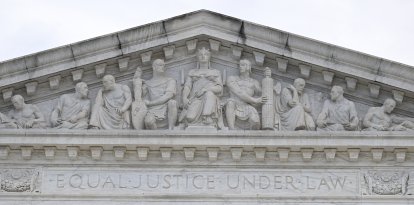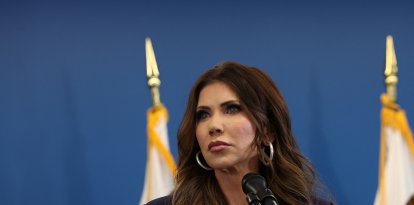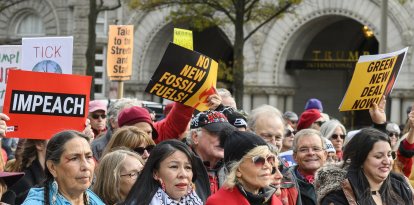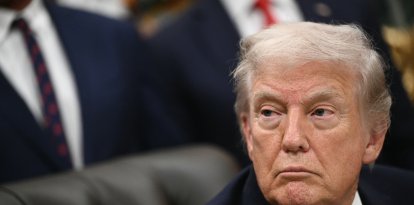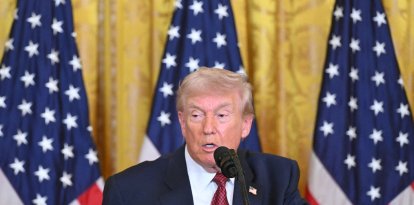Trump announces another 10% increase in tariffs on China for participating in the production of fentanyl
At the same time, the president announced that tariffs on products from Mexico and Canada will go into effect as of March 4.

President Donald Trump signs an executive order on tariffs.
President Donald Trump announced on Thursday that the United States will impose an additional 10% customs tariff on Chinese goods. The president claims that chemicals used to produce fentanyl come from China.
"China will have to pay an additional 10% tariff" on March 4 because "a large percentage" of drugs, "many of them in the form of fentanyl, are manufactured and supplied" in that country, the Republican president said in a message posted on his Truth Social account.
"More than 100,000 people died last year due to the distribution of these dangerous and highly addictive poisons," he added. "China will have to pay an additional 10% tariff" on March 4, Trump warned.
As announced, April will be the timeline for the potential implementation of what he refers to as "reciprocal tariffs." These tariffs on both allies and adversaries "will remain in full force and effect."
Tariffs return for Canada and Mexico
The president also noted that tariffs on products from Mexico and Canada will take effect on March 4. He cited the influx of fentanyl as a key reason for implementing these tariffs, stating, "Drugs continue to enter" the United States from those countries "at very high and unacceptable levels."
"We cannot allow this scourge to continue to harm the United States and, therefore, until it is stopped or seriously curtailed" the tariffs "scheduled" for "March 4 will go into effect, as scheduled," he announced on Truth Social.
In February, Trump pledged to impose a 25% tariff on exports from Mexico and Canada to encourage both countries to take stronger action against fentanyl trafficking, a synthetic opioid that has caused significant devastation in the United States, as well as to address illegal migration.
However, he set a one-month deadline to allow time for negotiations aimed at reaching an agreement to avert the tariffs.
The 180-degree turnaround on Mexico and Canada was announced on the day U.S. chief diplomat Marco Rubio is to meet in Washington with Mexico's security cabinet.
Mexican President Claudia Sheinbaum remains optimistic about resolving the disagreements through dialogue.
"We hope that we can talk with President Trump, (...) that we can reach an agreement and that on March 4 we can announce something else," Sheinbaum said at her morning press conference.
In recent weeks, both Mexico and Canada have made efforts to accommodate the United States.
Mexico, for example, sent 10,000 military personnel to the border to curb drug trafficking to the United States, the destination of more than 80% of Mexican exports.
The Republican magnate acknowledged on Wednesday that illegal migrant crossings at the border with Mexico had significantly decreased, attributing this decline to his policies.
He stated, "The data has been good, but that is also due to us—largely because of us. Right now, it's very difficult to cross the border."
However, he added, "the damage has been done," referring to the lives lost due to fentanyl overdose deaths.













